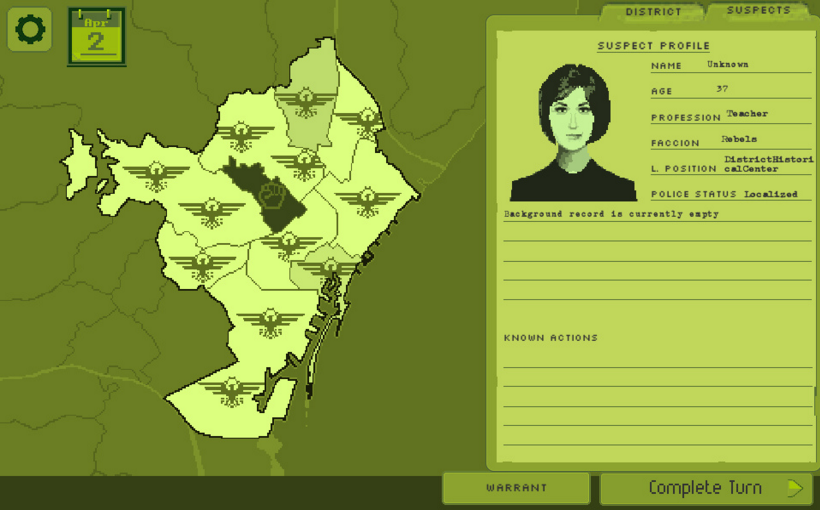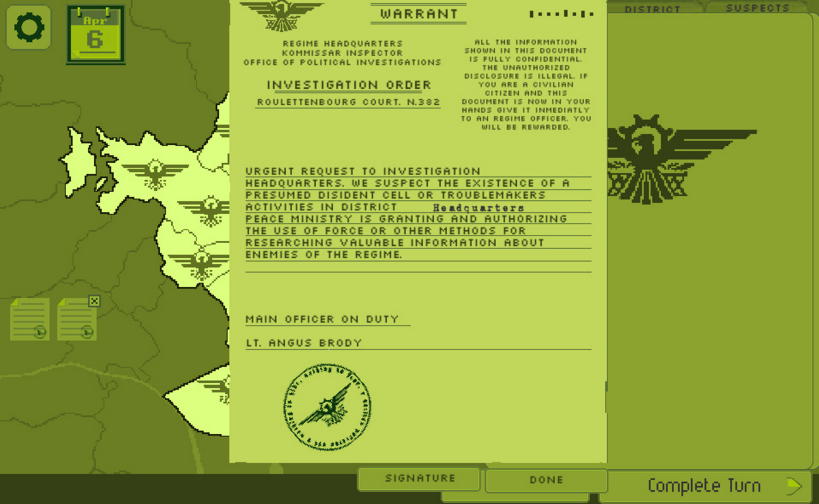It’s about the language. It’s always about the language.
Kommissar is a text adventure masquerading as a thriller—and that’s a good thing. You play as an officer in the Ministry of Truth. This is a plum job seeing as it went to you, a child of the elite, and not some pleb. Suffice it to say this is not an equal society. To the winner goes the spoils, and you are spoilt with spoils. One of those spoils is the power to issue warrants. And do you ever issue warrants, directing investigatory efforts and powers of detentions to various quadrants of Roulettenburg. Sure you sit behind a desk, but you are in the seat of power. The people who carry out your orders are never seen; they are just pawns in this operation.

There are things to do in Kommissar—choices to make, strategies to devise—but most of what you need to know about the game can be gleaned from intertitles. You know where the whole thing is going when you are asked to send “peacekeepers” to areas where the government is losing control. Similarly, Beardserk’s description of the game—“a political prosecution thriller”—hints at the game’s sterile, bureaucratic doublespeak. This sort of Orwellian language is not original, but it takes on a slightly different meaning in the context of a game; there is more to this world than its language, but you can never escape the effect of these words. Indeed, it is only appropriate that all your power comes from warrants, pieces of paper with your signature affixed to the bottom. These are just collections of words, but Kommissar is aware that words matter.
Cultural products about surveillance have to be set in a time and place. This is apparently a rule. Kommissar is therefore ostensibly set in the late 1920s, just like Florian Henckel von Donnersmarck’s The Lives of Others is set in 1983. These works are about their time, but they also take on a more general quality. The invasive power of bureaucracies is a timeless theme. In that respect, Kommissar may be more timeless than most of its points of comparison: there is nothing obviously late-1920s about the game. If you didn’t know that’s when it was set, it could be any other time. Kommissar’s intertitles tell you all they can, but they can’t always shield you from the arc of history.
You can play and download Kommissar over on Game Jolt.
